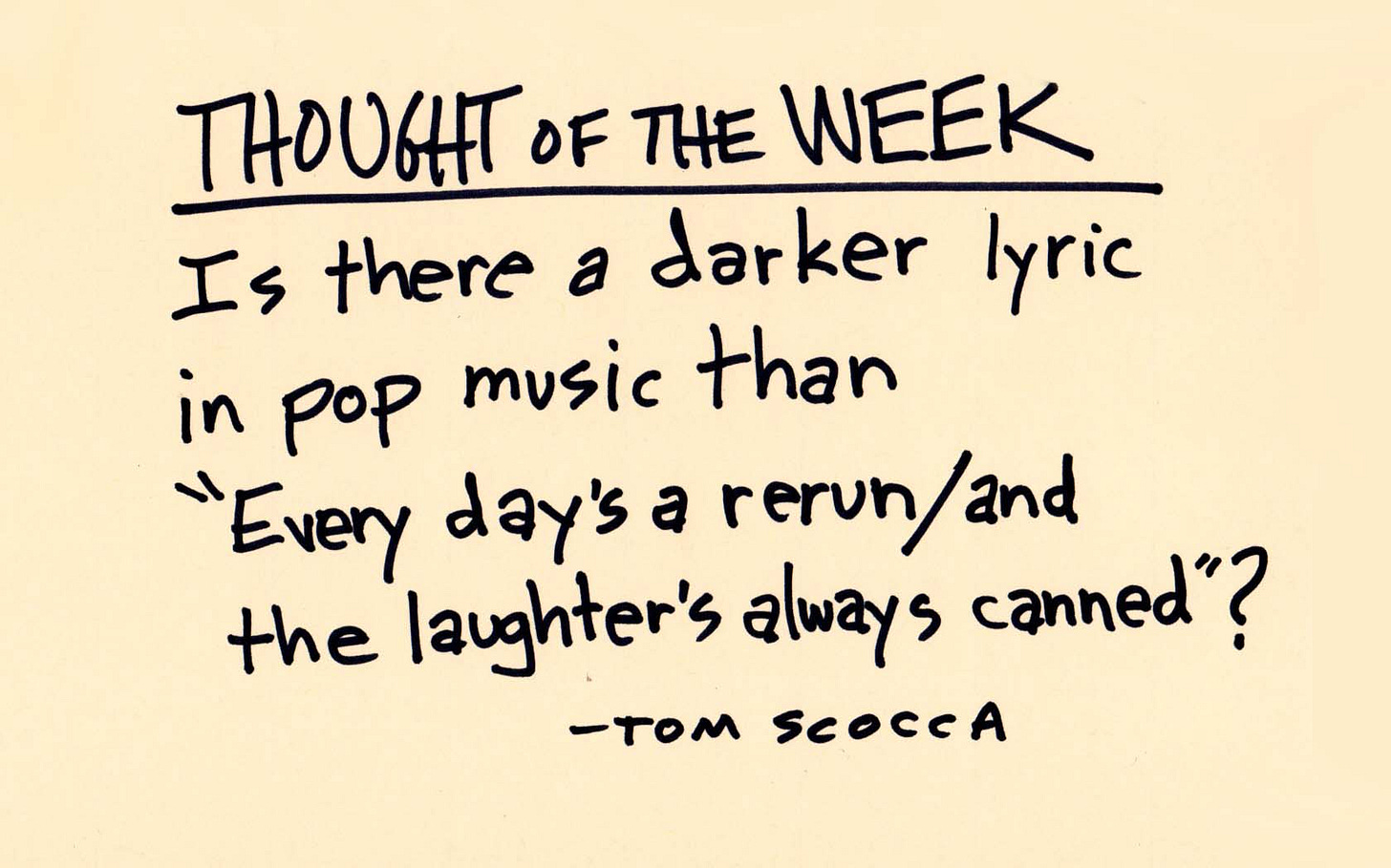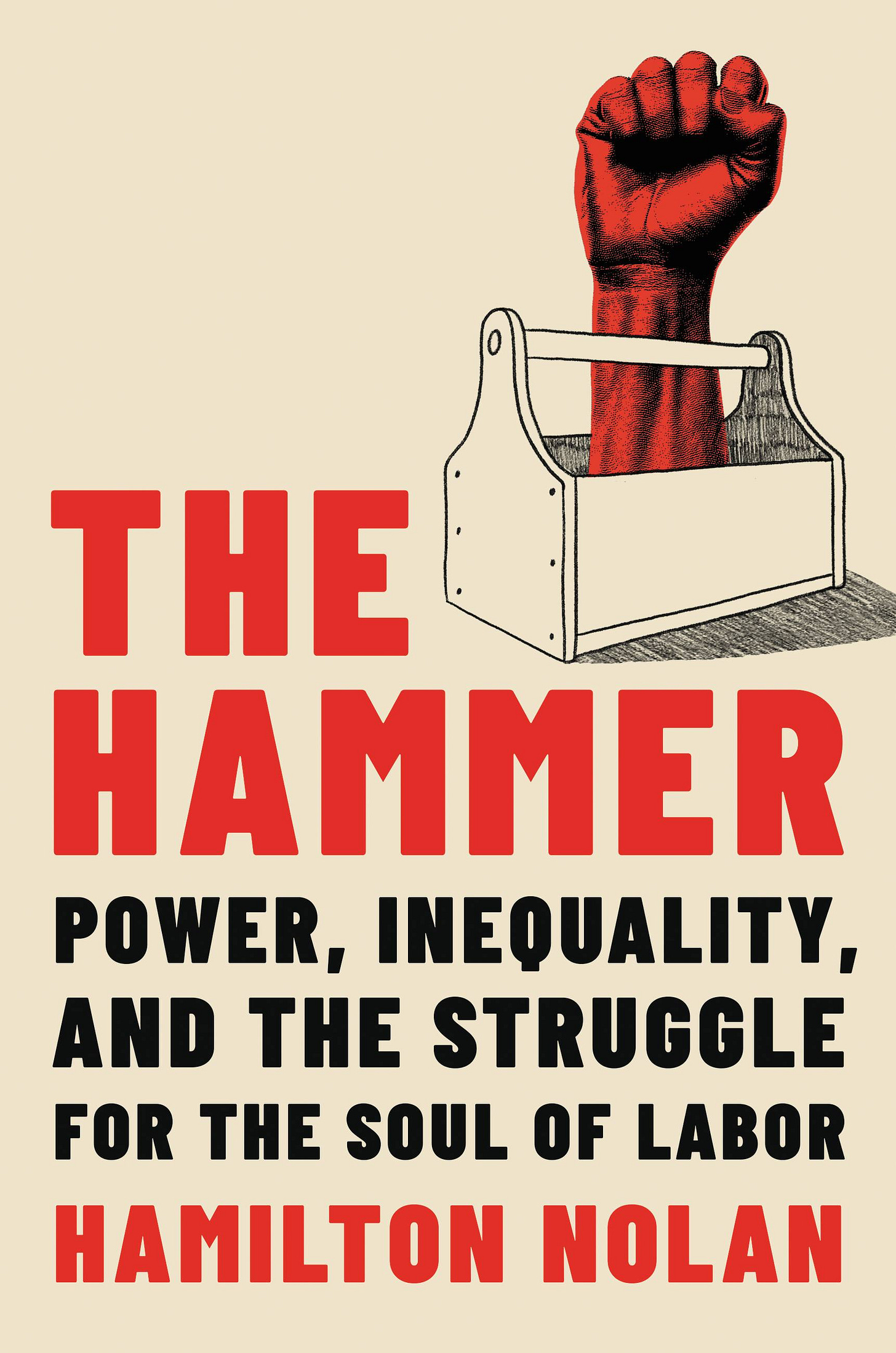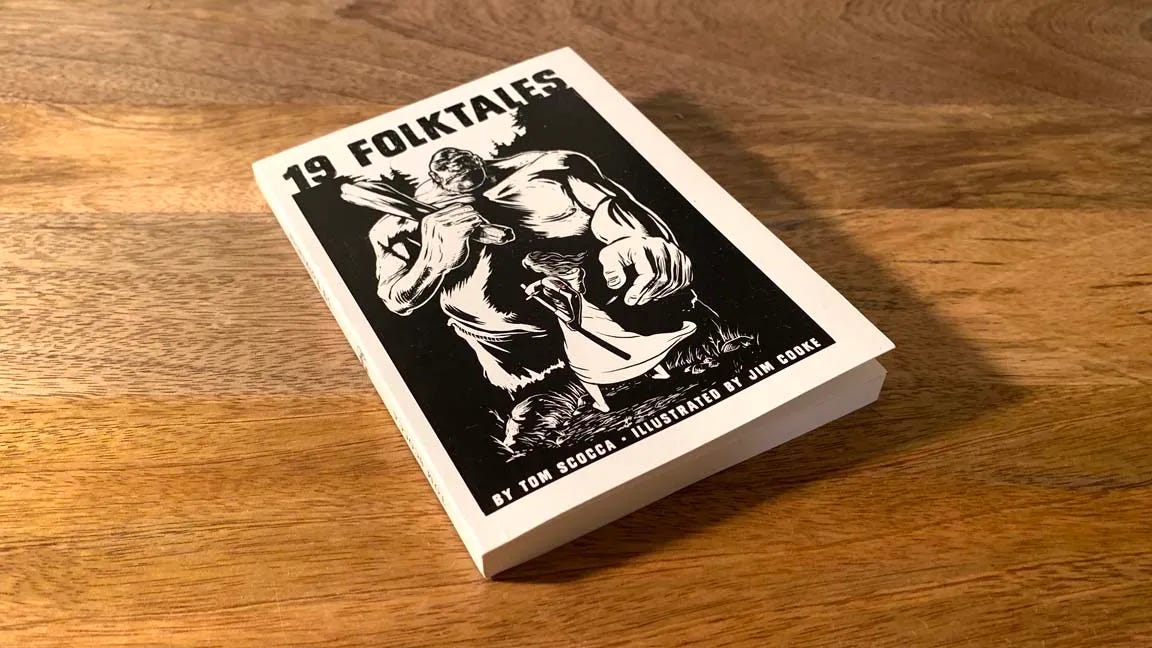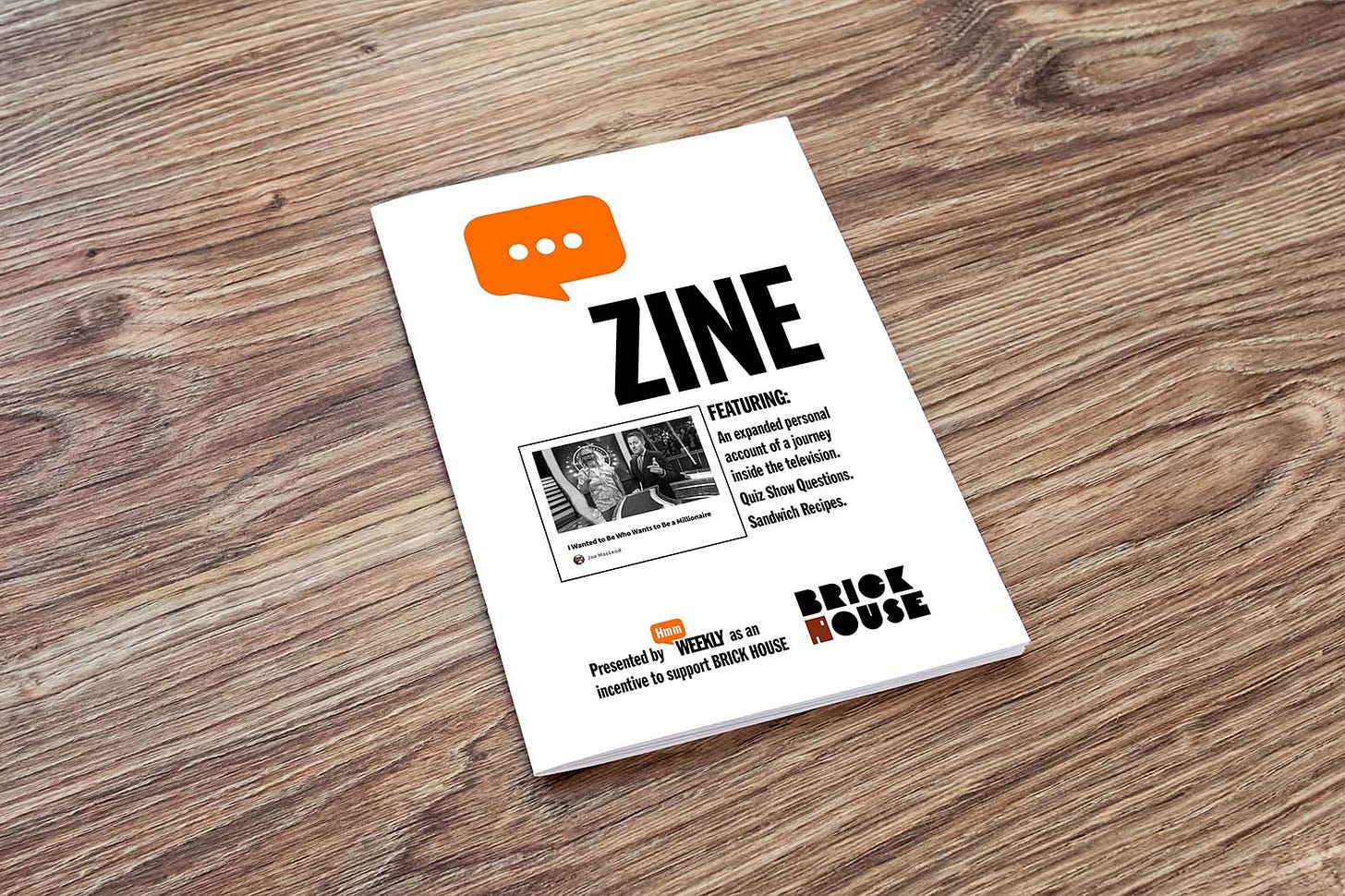THE WORST THING WE READ™
Call Off the Tropes
THE ATLANTIC, AMERICA'S No. 1 outlet for consolidating reactionary opinion among professional-class liberals, published a piece today by Adam Rubenstein, the former New York Times junior editor who was directly responsible for handling the opinion section's notorious "Send in the Troops" op-ed, published under the byline of Sen. Tom Cotton. Rubenstein's new story was the same story the participants in the debacle keep telling, about how woke staffers stampeded over the Times' leadership and its editorial standards, forcing the newspaper to recant a perfectly valid article and to force out opinion-department boss James Bennet for the crime of having challenged the complacent leftist consensus.
Rubenstein was nearly as self-pitying about the story as his former boss Bennet—he opened with an anecdote about being shamed for claiming to like Chick-fil-A at his Times orientation ("We don't do that here. They hate gay people") and by the end is lamenting that "a Slack channel called 'op-sensitivity' was created, in which editors were encouraged to raise concerns about one another’s stories"—if not as long-winded about it. But unlike Bennet, who hadn't bothered to read the Cotton piece before it was published, Rubenstein worked on the op-ed from its inception. As a result, he was able to shed maybe a little more light on the editorial process than he'd intended to.
For one thing, Rubenstein wrote that the Times had separate standards for handling conservative op-eds:
It was also clear that right-of-center submissions were treated differently. They faced a higher bar for entry, more layers of editing, and greater involvement of higher-ups. Standard practice held that when a writer submitted an essay to an editor, the editor would share that draft with colleagues via an email distribution list. Then we would all discuss it. But many of my colleagues didn’t want their name attached to op-eds advancing conservative arguments, and early-to-mid-career staffers would routinely oppose their publication. After senior leaders in the Opinion section realized that these articles were not getting a fair shake, the process evolved. Articles that were potentially “controversial” (read: conservative) were sent directly to the most senior editors on the page, to be scrutinized by the leadership rather than the whole department.
Here, not for the last time in the piece, Rubenstein was claiming one thing and describing its opposite. Right-wing submissions "faced...more layers of editing"—until, by his own recounting, leadership changed the editing process to skip over most staff review. What was presented as a story about "a higher bar" for conservatives turned into an account of how the Times lowered the bar for conservatives, protecting their submissions from the normal evaluation and editing process.
But beyond coddling conservative views, Rubenstein wrote, Times opinion leadership went to the effort of manufacturing them. The Cotton op-ed, in Rubenstein's telling, was effectively ginned up in-house at the behest of op-ed editor James Dao, after Cotton had tweeted about sending the armed forces after "insurrectionists, anarchists, rioters, and looters," with "no quarter":
The next day, Cotton’s office pitched me an op-ed about Twitter threatening to lock his account if he didn’t delete the original tweet. I sent the pitch to Dao, the op-ed editor. Rather than focus on the side issue of Twitter’s content-moderation policies, Dao replied, Cotton’s essay should be about the actual substance of his argument: In this case, does the president have the authority to invoke the Insurrection Act? Should he? Other editors who were consulted on the pitch found that argument worthwhile. I conveyed the reformulated idea to Cotton’s office, and his staff filed a draft early the next morning. We also had plans, as was our custom, to run arguments against Cotton’s view. And we already had.
Buried in that last hyperlink was an even more remarkable admission. The defenders of the "Send in the Troops" op-ed have always maintained that the outrage against it was based on a false premise—that Cotton was not calling for troops to be deployed against protesters, but merely for the military to put down violent rioters. To say otherwise, Bennet wrote in his own self-apologia in December, "misrepresented Cotton’s argument to make it seem he was in favor of crushing democratic protest."
Yet Rubenstein's second link to an example of "arguments against Cotton's view" led to a May 29, 2020 piece by Keeanga-Yamahtta Taylor under the headline "Of Course There Are Protests. The State Is Failing Black People." The op-ed touched only briefly on the subject of troop deployments at all, and did so while denouncing violent government overreaction to the protests:
In contrast, after Minnesota’s governor activated the National Guard on Thursday evening, the president suggested that those who protest police brutality could be shot. Protesters in Minneapolis are met with tear gas and projectiles launched by police officers, even as many other public officials claim to sympathize with their anger. These double standards are part of what roils Minneapolis and also why the potential for this kind of eruption exists in every city.
By Rubenstein's own description, this piece—an endorsement of the protests as an expression of public frustration with injustice—was the opposite of Cotton's view. What Cotton was writing against, as was obvious at the time, was the protest movement itself.
Further underscoring this, Rubenstein narrated the editing history of one of the crucial passages in the piece:
I was given the job of fact-checking and line-editing. Among other edits, I inserted a line making clear the distinction between peaceful protesters and law-breaking looters.
That "distinction between peaceful protesters and law-breaking looters" was held up by the op-ed's defenders, after the fact, as the heart of Cotton's argument, proof that he never meant to call for military action against the protests themselves. Yet Rubenstein described this supposedly essential, definitive piece of the argument as not having come from Cotton at all.
And then, later on, he wrote "In fact, Cotton’s essay was explicit in distinguishing between protests and the undeniable violence and looting: 'A majority who seek to protest peacefully shouldn’t be confused with bands of miscreants.'” Cotton's essay may have said that—although it studiously dodged the categories of protesters who were peaceful but not law-abiding or of protesters defending themselves against police attack—but did Cotton write it? Or did the Times?
NOT-SO-EASY LISTENING DEP'T.
The Indignity Morning Podcast is suspended today for technical difficulties, namely that the next-door neighbor started blasting '70s-through-'90s hit radio before 9 a.m. and still hadn't stopped well past 1 p.m. Has anyone ever recorded a worse piece of music than "We Didn't Start the Fire"? Not even "Sweet Caroline" is as bad, and Indignity got the chance to compare them.
ADVICE DEP’T.
Ask The Sophist
GOT SOMETHING YOU need to justify to yourself, or to the world at large? Other columnists are here to judge you, but The Sophist is here to tell you why you’re right. Send your questions to The Sophist at indignity@indignity.net, and get the answers you want.
THOUGHT DEP'T.
Do you have a thought? Send it to indignity@indignity.net.
WEATHER REVIEWS
New York City, February 25, 2024
★★★ A smell of smoke, mild and inoffensive like plain wood smoke, was trickling into the apartment. Outside in the street it was stronger. The re-sharpened cold felt confusing under the ever higher and warmer sun. A shredded clump of mylar flashed from where it was caught in the joint of a lamppost. No clouds were in sight, but something hazy scattered the light. New twigs and buds were out; a dove perched high in a plane tree over the playground. In late afternoon the shadow of an unseen plume of steam billowed against a rooftop superstructure, blowing low. Then the wind flagged and the plume reared up into view, glowing pink.
SANDWICH RECIPES DEP’T.
WE PRESENT INSTRUCTIONS in aid of the assembly of sandwiches from Modern Priscilla Cook Book; One Thousand Recipes Tested And Proved At The Priscilla Proving Plant, published in 1924, by The Priscilla Publishing Company, now in the Public Domain and available at archive.org for the delectation of all.
SANDWICH FILLING
1 cup peanut butter
1 3/4 cups blackberry jam or jelly
1 1/2 cups chopped raisins
1 cup pecan or almond meats (chopped)
Mix all ingredients thoroughly.
25 sandwiches.
PEANUT BUTTER SANDWICH FILLING
8 slices bacon
1/2 cup peanut butter
Broil bacon until crisp. Grind. Mix with peanut butter. 6 sandwiches.
MOCK PÂTÉ DE FOIE GRAS
Cook a calf's liver in salted water until very tender. Grind in a meat-cutter. Moisten with melted butter. Work into a paste with—
1/4 teaspoon cayenne or 1/2 teaspoon black or white pepper
1/2 teaspoon ground nutmeg
Speck clove
1 teaspoon Worcestershire sauce
1 teaspoon prepared mustard
Salt to taste
1 tablespoon of the water in which a minced onion has been boiled
Pack into jars that have been buttered, cover with melted butter, and set aside to be used for sandwich filling, or to serve on biscuit or crackers for afternoon tea.
If you decide to prepare and attempt to enjoy a sandwich inspired by this offering, be sure to send a picture to indignity@indignity.net.
MARKETING DEP'T.
HAMILTON NOLAN—friend of, and occasional collaborator with, Indignity—has published his new book The Hammer: Power, Inequality, and the Struggle for the Soul of Labor, which is out now, and you should read it!
Flaming Hydra is right now!
EACH WEEKDAY, SUBSCRIBERS to Flaming Hydra now receive a newsletter featuring pieces written by two different members of the Flaming Hydra cooperative, an all-star collection of independent writers, on a rotating basis. Everyone chips in their bit, and the readers get a steady diet of items. And if the readers keep on subscribing, the writers keep on chipping in, and the whole thing moves toward being a self-sustaining publication.
The second printing of 19 FOLK TALES is now available for gift-giving and personal perusal! Huddle up against the cold with a cozy collection of stories, each of which is concise enough to read within the snowy part of a wintry-mix storm.
HMM WEEKLY MINI-ZINE, Subject: GAME SHOW, Joe MacLeod’s account of his Total Experience of a Journey Into Television, expanded from the original published account found here at Hmm Daily. The special MINI ZINE features other viewpoints related to an appearance on, at, and inside the teevee game show Who Wants to Be A Millionaire, available for purchase at SHOPULA.
INDIGNITY is a general-interest publication for a discerning and self-selected audience. We appreciate and depend on your support!












